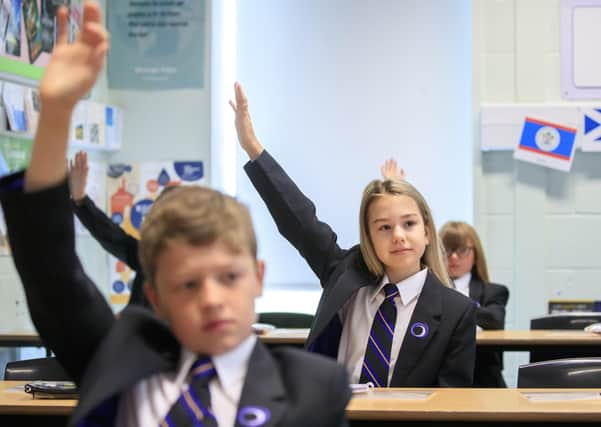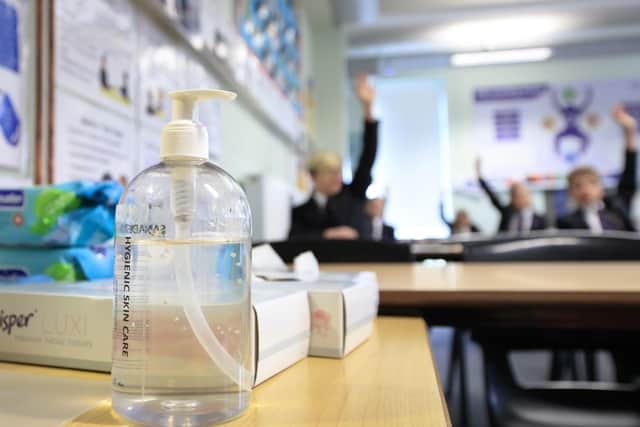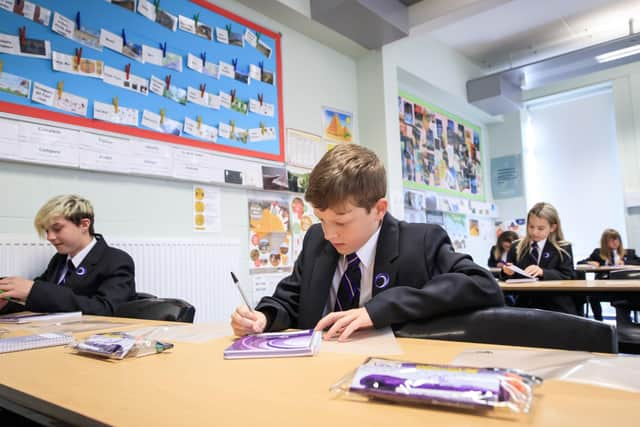Start again with exams or bring back O-levels – Chris McGovern


But is it going to be possible for pupils, of whatever background, to catch up what they have missed this year in terms of schooling? Pupils preparing for next year’s GCSE and A-levels are most affected – and this summer’s fiasco has already done enormous damage to the credibility of the exams.
In 2021, delayed exams based on slimmed-down syllabus content, with a greater choice of questions, is the likely outcome of current discussions. Online tests are being considered in the event of another lockdown.
Advertisement
Hide AdAdvertisement
Hide AdThis summer’s reliance on teacher predictions is unlikely to be repeated. It was necessary but it has caused irreversible damage to what was an already devalued examination currency. Awarding fake grades for fake exams is no way to run an education system.


A University of London report in December 2016 found that the accuracy rate for teacher A-level grade predictions was just 16 per cent. In a follow-up report last month, the University concluded that accurately predicting A-level grades is a ‘near-impossible task’.
The game is up for GCSEs and A-levels in their present form. After decades of grade inflation with ‘pass’ marks of under 20 per cent, reliance on teacher predictions have delivered the final blow to our exam system in its current form. Our qualifications currency has lost any meaningful value.
We need to start again. In the management of national economies, runaway currency inflation is not resolved by printing more money. Grade inflation, equally, is not resolved by inflating grades by an extra 10 per cent or so, as the Government has done this summer.
Advertisement
Hide AdAdvertisement
Hide AdA short term start would be to adopt exams that have international credibility. In terms of keeping a lid on grade inflation the International Baccalaureate is an obvious alternative to A-level. It has seen nothing like the runaway grade inflation caused by examination boards that compete to be easier.


We could, alternatively, revert to the grading based on norm referencing that determined grades prior to 1988. That system allocated the same percentage of specific grades from year to year. Only 10 per cent, for example, were awarded the top grade at A-level with around 20 per cent a B grade and so on.
This meant that grade inflation was eradicated. The grades were determined by what amounted to a rank order within a single year’s cohort. This was especially helpful for sorting out entry to higher education.
Another way forward would be to adopt the examination of another country. The monetary equivalent sometimes happen when a currency collapses. Argentina, Zimbabwe and Venezuela, for example, have, in recent years, reverted to the US dollar.
Advertisement
Hide AdAdvertisement
Hide AdWe should, perhaps, resort to the equivalent in examination terms by adopting what is on offer in one of the super-star education systems. Singapore comes to mind. And how easy that would be! The city state never relinquished GCE O-level. We banned that examination in 1988 in order to protect what was then the new GCSE examination from competition. The handful of teachers who objected lost their jobs.
The good news is that although prohibited here, the examination is conducted in conjunction with our own University of Cambridge Local Examinations Syndicate. What is more, Singapore-Cambridge also provides its own version of A-levels.
If the Government ever decides to face up to educational attainment reality it could do worse than adopt the Singaporean-Cambridge version of 16+ and 18+ exams. True, the international Organisation for Economic Co-operation and Development (OECD) places our youngsters well behind those in the top performing school systems of Asia-Pacific. But we need to allow some of our own children, at least, to rise to that challenge. Mountains are there to climb.
Instead, unlike crowded Singapore where pupils did sit exams, we decided to opt out of exams altogether this summer and to rely on teacher predictions.
Advertisement
Hide AdAdvertisement
Hide AdIt is understandable that many parents and pupils are currently concerned about catching up on months of missed schooling. Of greater concern is the need for British pupils to catch up on pupils in the most high attaining school systems around the world. According to the OECD, the catch-up gap is up to three years.
Chris McGovern is chairman of the Campaign for Real Education and a former comprehensive school teacher in Harrogate.
Support The Yorkshire Post and become a subscriber today.
Your subscription will help us to continue to bring quality news to the people of Yorkshire. In return, you’ll see fewer ads on site, get free access to our app and receive exclusive members-only offers.
So, please - if you can - pay for our work. Just £5 per month is the starting point. If you think that which we are trying to achieve is worth more, you can pay us what you think we are worth. By doing so, you will be investing in something that is becoming increasingly rare. Independent journalism that cares less about right and left and more about right and wrong. Journalism you can trust.
Thank you
James Mitchinson
Comment Guidelines
National World encourages reader discussion on our stories. User feedback, insights and back-and-forth exchanges add a rich layer of context to reporting. Please review our Community Guidelines before commenting.